Most of us will have experienced the feeling of our golf going downhill, but for those who use a golf trolley that happens every round.
That is why for me one of the key must haves is some form of descent control to slow the trolley when going down slopes and the S1 DHC is Motocaddy's first trolley to feature this in a single motor.
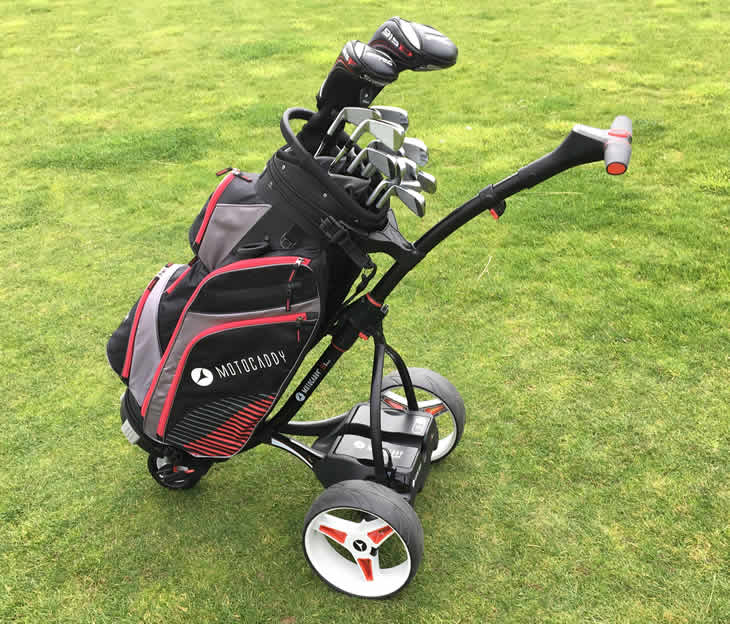
Whilst this is new for the UK in 2016, it appears the Germans have got their trolley towels on the course before us, as they have had dual motor models for a few years and also the current S1 DHC ahead of the UK.
No surprises for guessing that DHC stands for Down Hill Control and it involves the motor, gearbox, control, box and wheels working together. Unlike the standard S1, the S1 DHC has a limited slip differential gearbox and fixed wheels which do not have clutches, so it won't freewheel.
Within the 230W motor is a sensor that can tell if the trolley is going uphill or downhill and it adjusts the power for each setting accordingly and doing this within a single unit saves weight and improves performance.
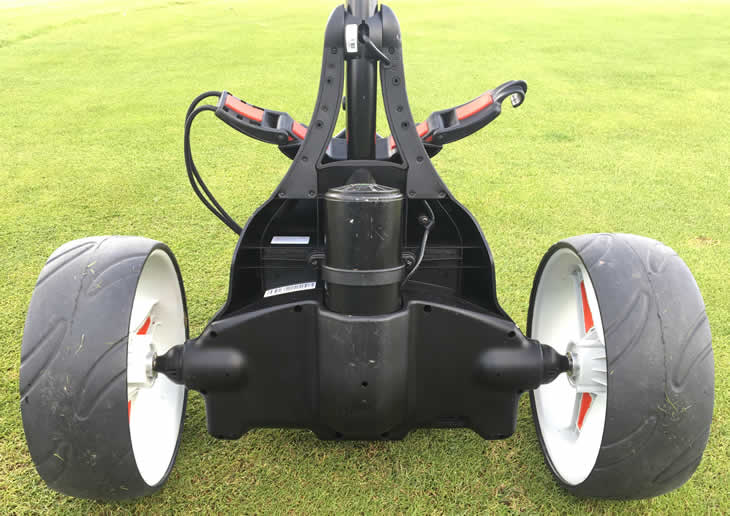
On the flat and going up hills the S1 DHC works like the normal Motocaddy S1, with the red dial on the handle increasing speed from 1 to 9 as required.
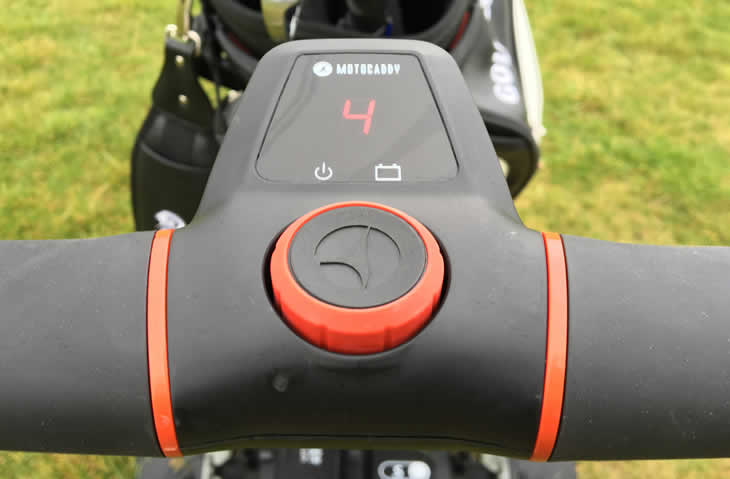
When you point it downhill, you just decrease the speed and the motor starts to take the load and slows the trolley down. I took it on some pretty severe slopes and even at the slowest 1 setting, it was enough to reduce the speed to a crawl.
If you need to bring the S1 DHC to a complete halt then you just click the dial to stop and it will hold its position on most normal slopes.
For severe slopes there is also an electromagnetic solenoid Parking Brake that can be activated when the trolley is stationary. All you do is push the dial to stop the trolley and then rotate the dial down to 1 and then one click further and a P will display on the screen.
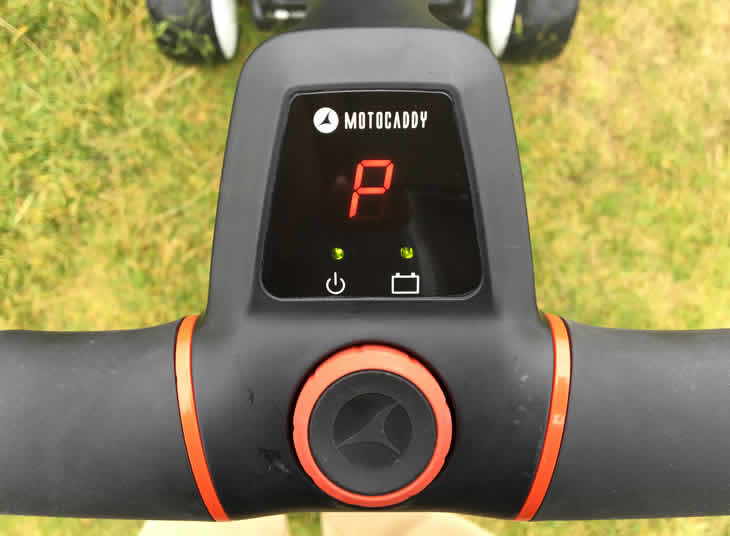
Going down my severe slope, I would be travelling at 1 and then hit stop, whereby there was a little creep going on, then I would rotate the dial to P and within 3 seconds the parking brake was activated. To release it you just clicked the dial to apply the power as usual.
This sequence took a bit of getting used to and once activated the Parking Brake did the job very well, but it is only required on very steep slopes.
Other than go, stop and the DHC, that is all the S1 control panel offers, which is a little disappointing as an automatic distance function would have been the second key feature I feel any electric trolley should have.
The standard S3 Pro has a distance function and some sleuthing revealed that the S3 Pro DHC name is already on the S1 DHC instruction manual. Apparently there are no plans to launch this in the UK as the Germans are already secretly playing with it too, but I am sure the DHC functionality will be on other UK products soon.
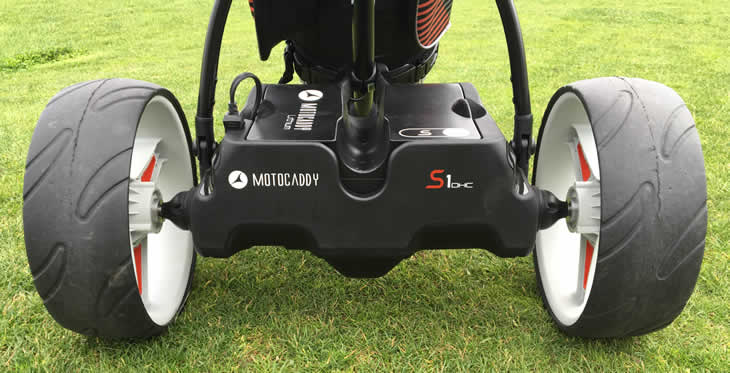
Either way it will be more cash and the S1 DHC is already £100 more than a standard S1 and £20 more than an S3 Pro. Looking at the current pricing structures, if the S3 Pro DHC ever got liberated from the Continent it would probably be around £60 more than the S1 DHC and would have the distance function and all the other paraphernalia that the Motocaddy S3 2016 Pro trolley display offers.
This is all very confusing when trying to ascertain if the S1 DHC is good value or not. If you are an automatic distance function fan like me then maybe holding off for both features on a Motocaddy might be worth the wait. It you just want to stop your S1 from taking you downhill rather than the other way around, then the DHC version is worth the extra investment over the standard version.
Aside from the DHC, the rest of the S1 trolley is as great as it has always been. The clean lines of the stylish frame feature all the upgrades to the 2016 range including the Quikfold system where a single button in the middle of the frame sees the wishbone support slide up, before the handle folds over to collapse the trolley and lock it in place.
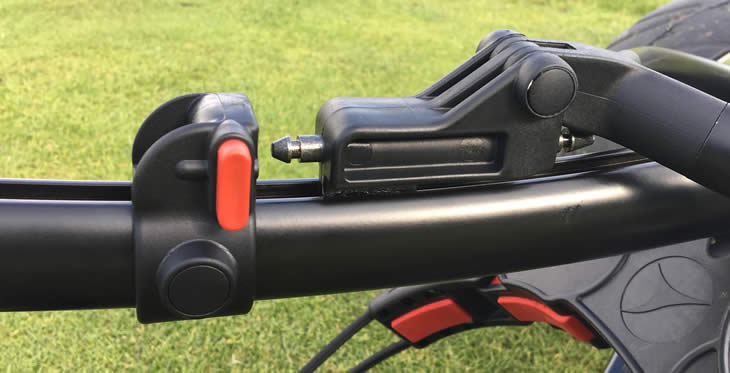
The handle is a little more upright than most and the much improved soft touch ergonomic grip that first appeared on this year's S3 Pro and feels comfortable and easy to manoeuvre the trolley.
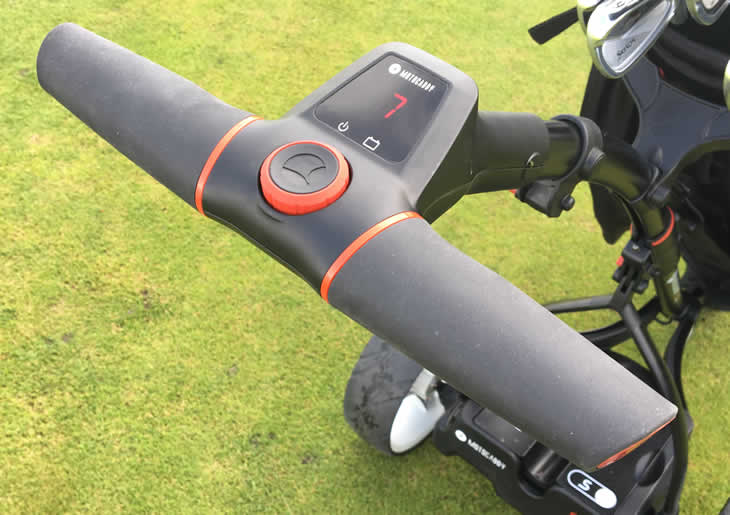
The aluminium frame comes in any shade of black you like and the more streamlined battery tray with some nice shiny plastic bits gives the S1 a sporty look.
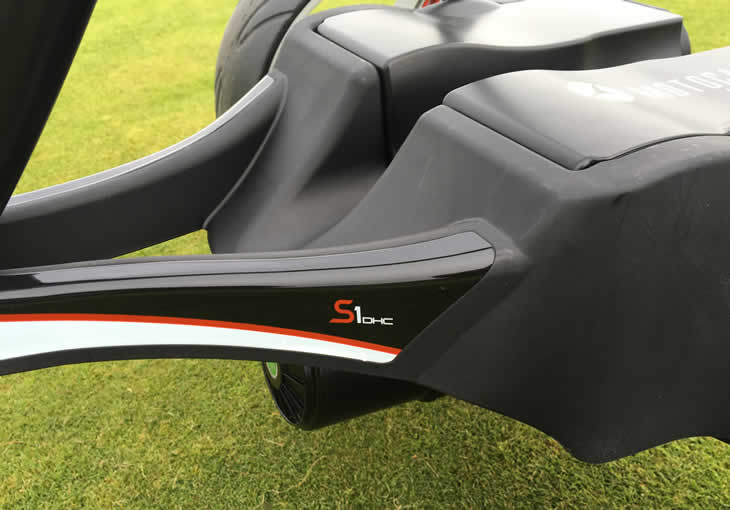
Unlike the other Motocaddy trolleys, the S1 DHC only comes with a lithium battery option, which means you have the benefit of the lighter and quicker charging battery.
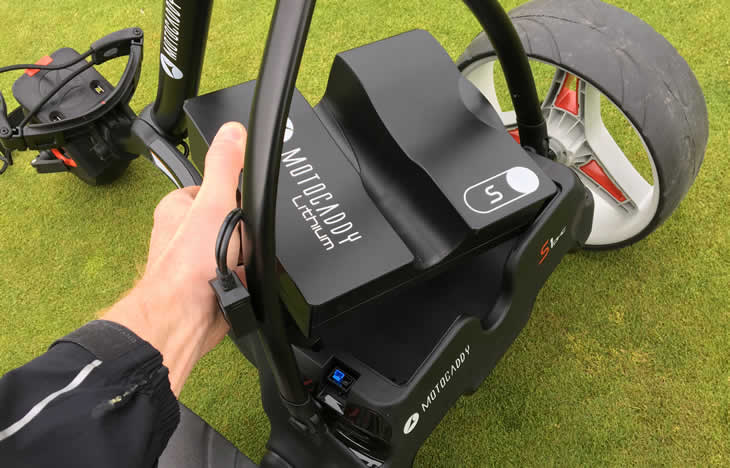
The base features a strap for your bag or you can opt for the EasiLock systems if you have a Motocaddy bag with the supplied screw in studs to lock the bag in place without using the strap, which is a very easy system to use.
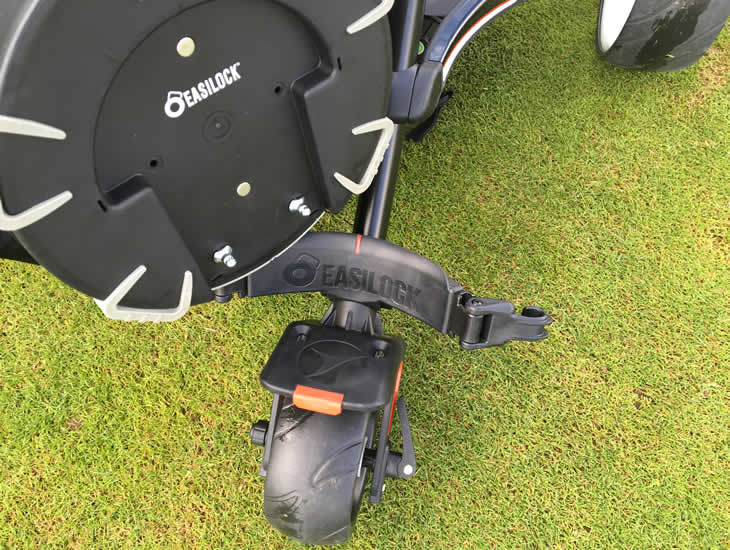
As a trolley offering the standard S1 would easily get 5 stars as it is well a put together, well designed, competitively priced point and shoot trolley.
The extra cost of the DHC version puts it into the higher price bracket where you have other trolleys with more options such as automatic distance, USB chargers and GPS holders, so it is hard to say whether it is good value from that point of view.
On the other hand it is currently the cheapest trolley out there with a DHC function, so if you aren't interested in bells and whistles and don't want to be taken for a ride on a hilly course then it starts to look like a good buy.
As ever, the final verdict is yours.